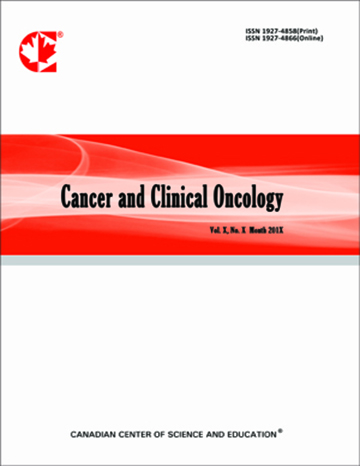Comparative Effectiveness of Adjuvant Chemotherapy in Elderly Colon Cancer Patients
- Sacha Satram-Hoang
- Luen Lee
- Shui Yu
- Faiyaz Momin
- Sridhar Guduru
- Carolina Reyes
- Edward McKenna
Abstract
Introduction: We assessed whether older patients experience the same treatment benefits from adjuvant chemotherapy in a real-world setting as younger patients in clinical trials. Methods: This retrospective cohort analysis used the linked Surveillance, Epidemiology, and End Results (SEER)-Medicare database. The analysis included 3,390 patients, >65 years, diagnosed with stage II or III colon cancer between January 1, 2004, and December 31, 2007. Patients were enrolled in Medicare Parts A and B, and had undergone adjuvant treatment with fluorouracil plus leucovorin (5-FU/LV; n=1,368), 5-FU/LV plus oxaliplatin (FOLFOX; n=1,398), capecitabine (CAP; n=507), or CAP plus oxaliplatin (CAPOX; n=117) within 3 months of surgery. Differences in patient demographics and disease characteristics by treatment were assessed by chi-square test and ANOVA or t-test. Cox proportional hazards regression and propensity score-weighted analyses were used to measure the relative risk of death associated with each treatment. Results: Median time from surgical resection to initiation of treatment was similar across cohorts (44-48 days). Mean treatment duration was longer for 5-FU/LV (149 days) and FOLFOX (144 days) than CAP (121 days) and CAPOX (111 days); p<.0001. In the propensity score-adjusted survival models, patients treated with FOLFOX (HR=0.70; 95%CI=0.55-0.90) and CAPOX (HR=0.44; 95%CI=0.20-0.98) had a significantly lower risk of death than 5FU/LV, while risk of death was similar between CAP and 5-FU/LV. Conclusions: Elderly patients with colon cancer have similar benefits from adjuvant chemotherapies in real-world settings as demonstrated in younger patients in clinical trial settings.
- Full Text:
 PDF
PDF
- DOI:10.5539/cco.v2n1p115
Journal Metrics
Google-based Impact Factor (2018): 3.94
h-index (August 2018): 8
i10-index (August 2018): 6
h5-index (August 2018): N/A
h5-median(August 2018): N/A
(The data was calculated based on Google Scholar Citations. Click Here to Learn More. )
Index
Contact
- Lexie GreyEditorial Assistant
- cco@ccsenet.org
